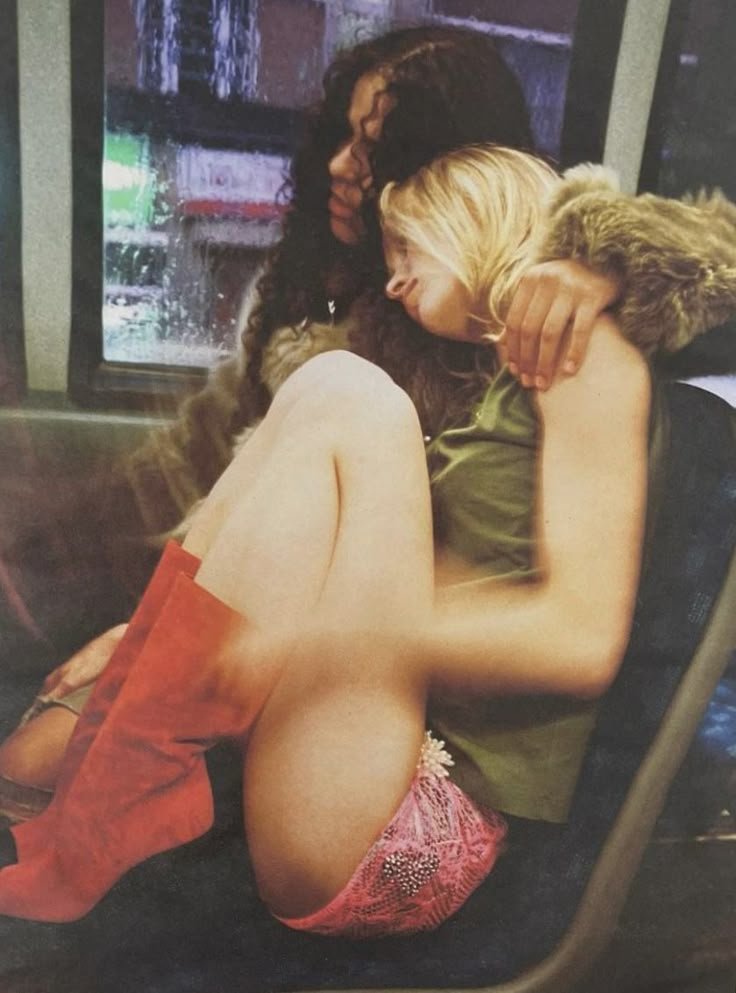“U-Haul Lesbians” as a Product of the Patriarchy: An Examination of the Political Forces Behind Sapphic Intensity
Written by JJ Baysinger
Last week, I went on a first date which lasted six hours. We went out for chocolate chais, got lost in a thrift store, and ended the afternoon cuddled up in my bed, talking about everything from childhood memories to the kind of love we think we deserve. At some point, she looked at me and said,“ You’re so refreshing.” I knew exactly what she meant – we were both relieved to meet someone who loved as intensely as the other. There was no careful posturing, no hesitation about coming off as“ too much”, no pretending that love is a game to be won through indifference. It was instant familiarity, the kind of ease that makes time irrelevant. The next morning, she sent me a song that reminded her of me, and I caught myself already wondering what it would be like to wake up next to her every day. And just like that, I had accidentally become a walking stereotype.
The infamous U-Haul lesbian has become a Queer, cultural phenomenon. She exists in movies, in stand-up routines, in knowing side-eyes between friends when one of them mentions a new girl. She is both celebrated and ridiculed, both an inside joke and a public spectacle. And while most write off warp lesbian time as a shocking, sapphic“ quirk”, I see it as a predictable outcome of the way women are socialized. From birth, women are instructed to be emotionally available, to nurture, to pour themselves into relationships without hesitation. We are taught that relationships are our highest calling, that our worth is measured by our ability to nurture, to connect, to hold others up. From the moment we are old enough to understand love, we are taught that it is our job to nurture it, to anticipate needs before they are spoken, to soothe, to sacrifice, to give until there is nothing left. We are raised to believe that our ability to love deeply and selflessly is our greatest virtue. So why would we be surprised when two women, both trained in the art of emotional availability, find themselves drawn together like magnets? When you spend your whole life being conditioned to prioritize connection, of course you’re going to run towards it full speed.
Oftentimes when two women come together, there is no one playing hard to get, no one holding feelings hostage, no one rationing out affection like it’s a scarce resource. In a lesbian relationship, there is no“ man” to set emotional boundaries or spiritually disengage with. As a result, emotional intimacy builds fast.
Society has a problem with that. Why? Because it threatens the foundation of patriarchal control over emotional labor. It doesn’t fit the mold. It’s threatening when women stop prioritizing sacrifice and instead choose to give that intensity to one another. A patriarchal society thrives on women’s emotional labor being poured into men, children, even workplaces – anywhere but into ourselves or each other. It is disruptive when we decide to invest that emotional labor back into ourselves or back into other women. Society can’t make sense of that, so it frames sapphic intensity as irrational, desperate, or unstable, without stopping once to consider that this level of intimacy isn’t a dysfunction, but a natural response to the way women have been conditioned.
So, here I am, living out this stereotype, wondering why society is so uncomfortable with it. Maybe we’re not the problem! Maybe the problem is a world that has spent centuries teaching us to suppress our emotional depth, only to laugh when we reclaim it. Perhaps the true absurdity lies in a system that values women’s emotional labor only when it’s poured into others. So, before we continue to mock or question this intensity, maybe it’s time we all ask: why is it so unsettling to see women love each other the way we are taught to love everything else?

